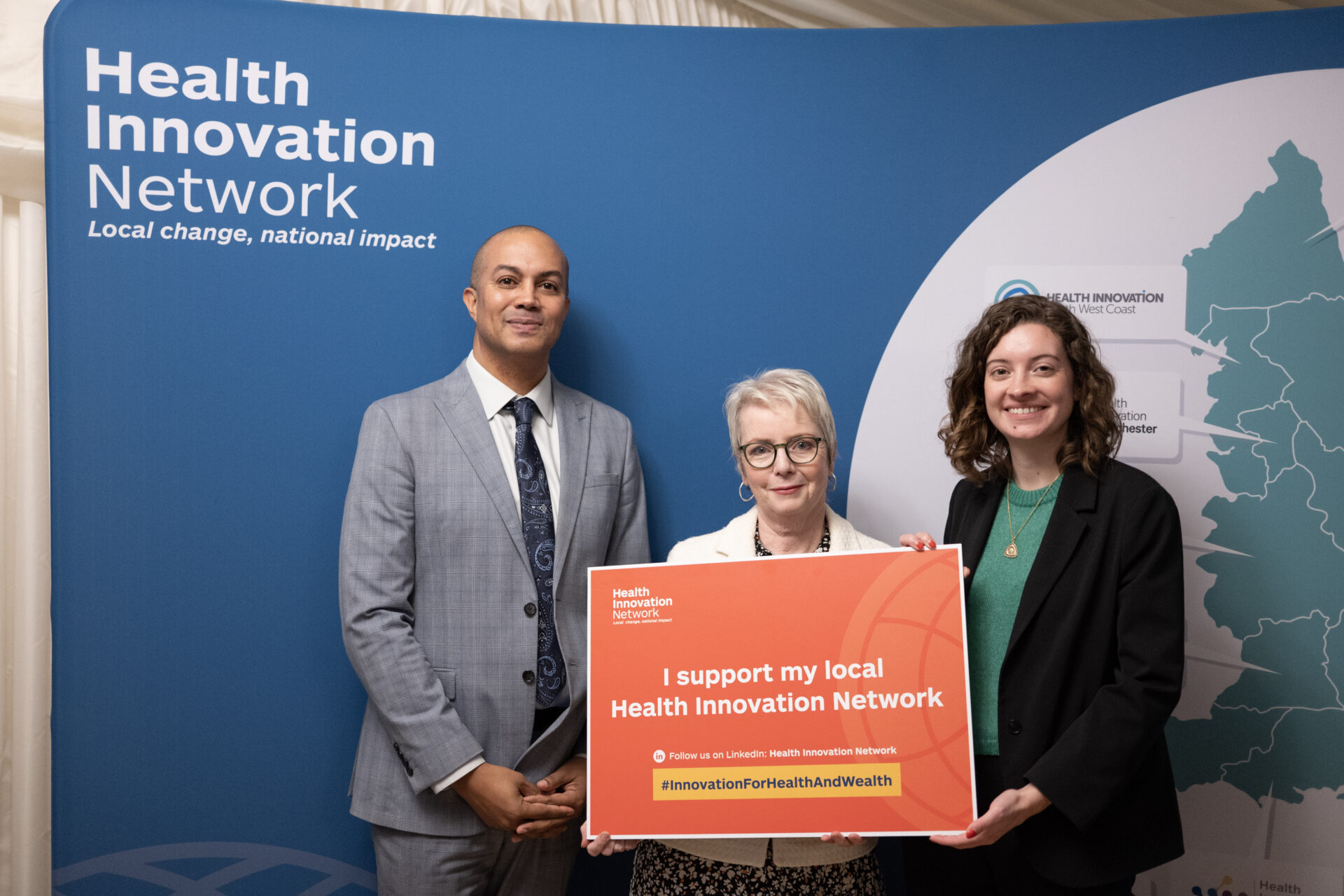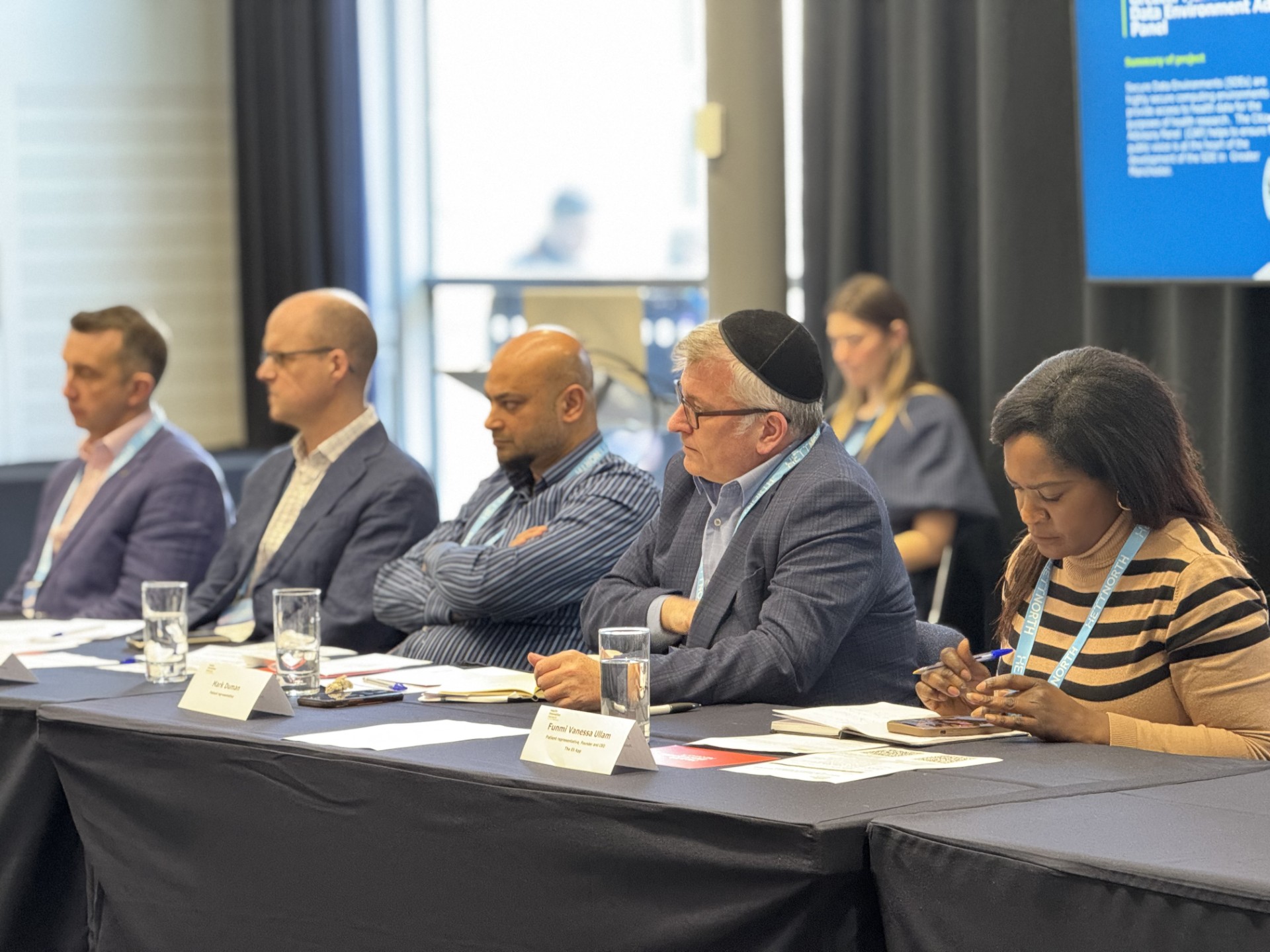- Regions report successful spread of pre-term optimisation bundle which is improving care for babies
- Patient safety teams facilitating learning between clinical teams across the country
- Patient safety improvements seen in key pre-term birth optimisation areas including cord management and antenatal steroids
Patient safety collaboratives (PSCs) are supporting the scaling up and spread of the Maternity and Neonatal Safety Improvement Programme (MatNeoSIP). One strand of this is the BAPM pre-term birth optimisation bundle. The bundle consists of the following components which aim to improve outcomes for infants born before 34 weeks: place of birth, antenatal steroids, magnesium sulphate, intrapartum antibiotics, optimal cord management, normothermia and early maternal breast milk.
65% of organisations have adopted at least 4 out of 7 of the key interventions that are part of the pre-term infant optimisation pathway.

To help to deliver the pre-term birth optimisation bundle, the NHS England patient safety improvement team and PSCs are facilitating a series of action learning sets. These have focused on specific topics including optimal cord management in pre-term infants, and antenatal corticosteroid use. At the action learning sets, teams present detailed case studies which stimulate discussion and reflection and provide examples of good practice. This space for sharing information and experience is vital in supporting maternity and neonatal units to adopt and monitor improvements successfully.
North East and North Cumbria AHSN presented their region’s data as a case study at the first action learning set in August 2022. This focused on the successful spread of optimal cord management (OCM) in babies born before 34 weeks. Waiting for at least a minute to clamp the cord can be a difficult cultural change, particularly in pre-term births where staff are trained to act quickly rather than wait. Some areas have suggested tasks that could be completed during that all-important minute to help staff to make the change.
In the 15 months between July 2021 and September 2022, 261 more babies received OCM, resulting in better outcomes for babies.
A dedicated local OCM collaborative has helped the improvement to gain traction. The OCM collaborative facilitates shared learning with cross-system involvement from the Northern Neonatal Network, Maternity Clinical Network, Local Maternity and Neonatal System, plus maternity and neonatal staff from each Trust.
Nationally, OCM in pre-term births has been adopted in almost twice as many Trusts as this time last year.

Patient safety leads, obstetricians, neonatologists, midwives and other clinical and non-clinical professionals from across the country attend the action learning sets to discuss what is going well with the programme implementation, what challenges they have come across and steps taken to overcome these.

At Liverpool, the women’s hospital has had great success with its midwifery recruitment, which supports 8,000 births each year. 38 midwives have been recruited to the preceptorship programme, which will assist in the delivery of improvements for women and babies.
The Innovation Agency North West Coast AHSN has provided a range of support materials to Liverpool Women’s and other units in the region to help raise the profile of the bundle. These include posters for display in staff meeting areas, quick reference cards that can be secured to ID cards, branded mugs and pens, and a quiz that teams can use to check their knowledge.
In addition to improving the safety of maternity services, the Better Births five-year forward view for maternity care highlights the importance of giving women more choice in their pregnancy care.
 To support conversations between clinicians and expectant mothers about antenatal steroid use, another element of the pre-term optimisation bundle, the Innovation Agency North West Coast AHSN is developing an information leaflet. The leaflet is being co-produced with a local women’s group and aims to present the key facts in a straightforward way to pregnant women to help them to make informed decisions about their care. Maternity units across the region will be provided with the leaflet as part of the local patient safety collaborative’s work.
To support conversations between clinicians and expectant mothers about antenatal steroid use, another element of the pre-term optimisation bundle, the Innovation Agency North West Coast AHSN is developing an information leaflet. The leaflet is being co-produced with a local women’s group and aims to present the key facts in a straightforward way to pregnant women to help them to make informed decisions about their care. Maternity units across the region will be provided with the leaflet as part of the local patient safety collaborative’s work.
University Hospitals Plymouth (UHP) and South West AHSN are also placing a focus on antenatal steroid optimisation, as part of the project Perinatal Excellence to Reduce Injury in Premature birth (PERIPrem) led by the West of England AHSN in partnership with the South West AHSN and South West Neonatal Network. The UHP maternity and neonatal team presented an evaluation of their pre-term birth steroid data at a national MatNeoSIP action learning set held in December 2022.
Maternity and neonatal staff at UHP have taken action to ensure that steroid administration plans consider the timing of planned births, which are usually during the day, to maximise the potential for giving an optimally timed and complete course of antenatal steroids. UHP staff are taking more time to understand underlying risk factors in how women present in order to effectively time steroid administration.
The national picture for optimising steroid use in maternity care is positive with around twice the number of Trusts taking up this element of the bundle compared with the previous year.

Cheryl Crocker, AHSN Patient Safety Director commented:
“It’s exciting to see such wide collaboration within local areas and nationally to support the delivery of the MatNeoSIP pre-term birth optimisation bundle. The action learning sets are a brilliant tool for clinical staff and are a valuable addition to the support being provided by patient safety collaboratives across the country. The programme is about saving babies’ lives and it’s wonderful to see that maternity and neonatal teams are seeing such positive outcomes for babies, women and their families.”
Across the country, the preterm optimisation bundle is showing continued adoption with close to five elements being taken up by 65% of Trusts.
Find out more about the work of the AHSN Network Patient Safety Collaboratives.

The Health Innovation Network is delighted to announce the launch of Innovation Insights, a brand-new webinar series designed to highlight the latest in health innovation, offering attendees valuable insights into the adoption and spread of innovation within the health and care landscape. Each interactive webinar will feature: Expert presentations: Delivered by thought leaders across [...]

The Health Innovation Network, at an event sponsored by Sarah Coombes MP, brought together parliamentarians including Health Minister Karin Smyth MP and Chair of the Science, Innovation and Technology Committee, Chi Onwurah MP to meet with six innovators supported by health innovation networks across the country and their NHS partners. At the Meet the Innovators: [...]

The need for fast-paced innovation in healthcare is widely acknowledged. And ensuring that healthcare innovation is shaped by the people it serves remains a pressing priority – one made all the more evident by the growing emphasis on health equity in the 10 Year Health Plan. Patient voices are often cited as central to healthcare [...]









